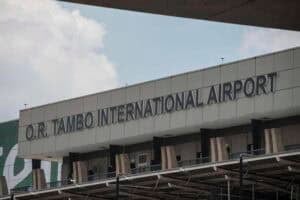Despite the end of a two-year war in the northern region of Tigray in November 2022, there are still a myriad of conflicts in the country.

Ethiopia is failing to halt significant human rights violations in conflict zones, Amnesty International said Tuesday, as Human Rights Watch condemned the detention of the brother of a murdered opposition leader.
Despite the end of a two-year war in the northern region of Tigray in November 2022, there are still a myriad of conflicts in the country, including in the Amhara and Oromia regions.
Amnesty said that rights violations continue “unabated” in Amhara, while reports of atrocities in Tigray and abuses in Oromia “have largely gone unaddressed”.
ALSO READ: Tigray capital slowly emerging from shadow of war
“Despite claims of commitment to justice, mainly through so-called transitional justice mechanisms, Ethiopian authorities have failed to halt these violations,” it said.
“Millions of Ethiopians are being denied justice despite having their lives shattered by conflict.”
Amnesty said a claim by Prime Minister Abiy Ahmed that his army does not commit massacres “demonstrates the government’s ongoing denial of past and present crimes”.
It urged African partners and other global rights bodies to “take urgent steps to investigate alleged crimes in the Amhara region”.
Self-defence militias in Amhara known as Fano, which fought alongside federal troops in the war against Tigrayan rebels, turned against them last year after Abiy’s government announced it was dissolving regional forces.
A state of emergency was imposed by federal authorities in August last year after fighting erupted in Amhara but the measure lapsed in June.
Meanwhile, Human Rights Watch (HRW) pressed for the release of 11 people in detention including the brother of Bate Urgessa, a prominent member of the Oromo Liberation Front (OLF) who was found dead in the Oromia town of Meki in April.
The rights group said a local court had ordered the brother’s release in June, but he remains in detention.
“Security officials are saying they don’t know about him, that he is not held by them,” said one individual familiar with the case, according to HRW.
ALSO READ: More than 50 000 displaced by clashes in northern Ethiopia: UN
Laetitia Bader, HRW’s deputy Africa director, said the detentions showed “the government is more concerned about preventing the truth from coming out than uncovering it”.
The United States, the European Union and Britain have all called for a full investigation into Bate’s death.
Ethiopia’s largest and most populous region, Oromia has been in the grip of an armed insurrection since 2018. However the OLF renounced armed struggle after Abiy, himself an ethnic Oromo, came to power.
The decision prompted the Oromo Liberation Army to split with federal forces and peace talks have so far failed.
The authorities are accused of waging an indiscriminate crackdown that has fuelled Oromo resentment.
Ethiopia’s national rights watchdog, a state-affiliated but independent body, said in July that rights violations against civilians in conflict zones had become more widespread.
© Agence France-Presse






